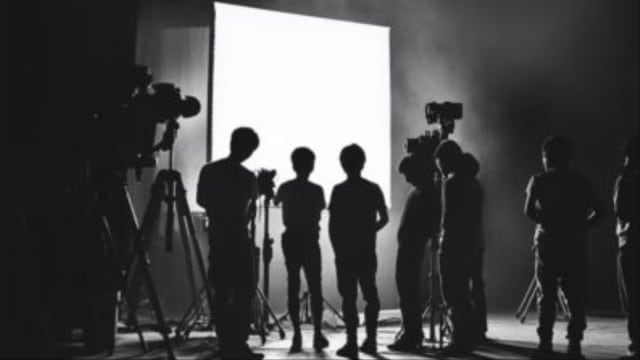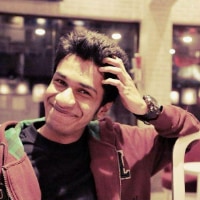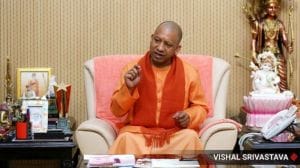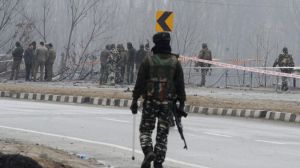The actor, who had featured in a surprise hit film a few years ago, panicked when she realised her room was on the same floor as his and all the other actors were at least two floors below. Then in about ten minutes, the doorbell rang. “I freaked out completely. Then there were knocks for about a good 30 minutes and then he finally stopped. I was shocked because he looked the safest,” the actor told indianexpress.com about her ordeal. The incident took place in early 2020, two years after the conversation around women’s safety was at its peak during the #MeToo movement.

Following the explosive Justice Hema Committee report, which provided a damning indictment of the discrimination and exploitation faced by women in the Malayalam film industry, there have been renewed discussions around the safety of women on film sets across movie industries. Bollywood, specifically, had its watershed moment in 2018 when many influential names were called out during the #MeToo movement, causing many to hope that the rotten system would finally be cleansed.
Story continues below this ad
Over the last two weeks, indianexpress.com spoke to several women in the industry — actors, producers, assistants, those relatively safe due to family privilege, and the vulnerable outsiders — to find out if Hindi film sets have become a safer workspace and to point out possible solutions to ensure it remains a place that births dream, not nightmares.
‘There’s a post-MeToo fear factor’
When popular names from the Hindi film industry were shamed for their inappropriate behavior — six years before the Hema Committee Report went public and created a domino effect — film sets were clouded with a “fear factor”. A film executive — who has worked across writers’ rooms and multiple films sets post #MeToo — says people are no more “blatant”.
“There is an atmosphere of fear. Nobody is worried about going to jail, it’s purely the reputational damage that stings,” the source shared.
However, the men in power positions, who were previously called out are back to work. So many others, who would “mess up” a lot and were hired on a project basis, were not in any power position and have now receded. “They think this is a sure-shot way of not being employed. The ones who were lower on the food chain have been impacted more,” the film executive added.
 ‘No one is worried about going to jail, but it is the reputational damage that stings’ (File photo)
‘No one is worried about going to jail, but it is the reputational damage that stings’ (File photo)
A popular actor, who shot to fame with a major OTT show a few years ago, shared that she often hears casting directors say they have now installed CCTV cameras inside their office cabins. “It’s said as a joke like they are the victims, but the fear is palpable.”
Story continues below this ad
This sentiment resonated across the board — horror stories one would hear often have now reduced, but not that harassers don’t have a way. An actor, known for her acclaimed roles on OTT, shared how the awareness has come in, but the power game is still on.
“The powerful men have become smarter, so they say, ‘I have a good role for you, a great project so why don’t we meet?’ It starts like that and a woman always gets a hunch. The power play is so much that it will take a lot of courage. Big actresses have not come out in the open with what they have gone through, so how do you expect a small assistant to do that?”
‘Can’t be just friendly’
The actor, who was subjected to harassment by one of the producers on the show, said the incident reaffirmed how difficult it is for women in the workspace to be friendly.
“When you are shooting for long hours and days, of course you become friends but people misinterpret that as you liking them or being willing. You can’t be overfamiliar and have to be always on guard. Having realised the importance of having a staff and a bodyguard, I started tweaking my contracts after that for outdoor shoots,” she added.
Story continues below this ad
An actor, who has been a prominent face across films and OTT shows, recalled how a co-star had once “misunderstood” her intentions when she was sitting with him in her room.
“He was not a friend, but I had bumped into him. It was hot so we were chilling in the room and then he suddenly started to play with my hair. I froze because it was so strange. After a few minutes I turned around and said, ‘Dude what are you doing?’ That’s what made me realise what it means when women freeze in a moment. The starting point should be to have an organisation that monitors this– if not present all the time on set like an ambulance– to at least have a contact point,” she shared.
There is also the issue of “networking” which goes into dangerous territory, as women often have to meet men for work, who are ill-intentioned. A TV actor, who has been working in the industry for the past four years, shared how “powerful” men in the business will meet an actress for work but will be more interested in turning it into a date. The questions are personal, never professional, and the clincher is always this: Do you drink?
“If you say yes, the meeting will be followed by drinks where it gets deeply uncomfortable,” the TV actor shared. Such meetings, the young artiste added, leave outsiders vulnerable as they think there is no other option but to keep the men happy and to remain in their good books. I have come home crying several nights, not sure if what I did was right or wrong. When you say no to someone, you wonder if it will harm your career. It becomes tougher when you are new with no power,” she added.
‘No place for bad behaviour’
Story continues below this ad
The incident involving knocking and insistent phone calls was not one off. Most of the female actors Indian Express spoke to revealed they all had “heard” such stories, even if not they weren’t at the receiving end. The actor, who was subjected to the disturbing episode, shared how she had informed the team about the man’s behaviour, after which he was ousted from the sets immediately.
“He was never seen after that,” she sighed. The film executive said what happens on set, broadly speaking, depends on who is leading it. “It flows top down. If you have a temperamental, slightly oppressive, unpredictable director, who is snapping at various departments, that attitude is passed down.”
The executive was privy to at least two instances on film sets recently where someone was “badly behaved” and was thrown out promptly the next day. An actor, who has worked in films and some of the most popular OTT shows, revealed that she was instantly at ease on the shoot of an Emmay Entertainment project, when she learnt that the call sheet had a number for sexual harassment, wherein one could be anonymous and register any workplace complaint. The production house is founded by Nikkhil Advani, Monisha Advani and Madhu Bhojwani.
 The founders of Emmay Entertainment. (Photo: Emmay Entertainment official)
The founders of Emmay Entertainment. (Photo: Emmay Entertainment official)
“That was very progressive for a production to do it. Such moves are important because there is a third party looking into it,” she added. When Indianexpress.com reached out to Emmay Entertainment, they acknowledged the practice and stated that they uphold “a zero-tolerance policy towards sexual misconduct in any form, prioritizing the safety, health, and well-being of all individuals, especially women, within our organization.”
Story continues below this ad
“While policies are important, we believe creating a truly safe and inclusive work environment requires nurturing a culture of mutual trust, respect, and professionalism. To further this goal, we are committed to implementing industry best practices specifically designed to ensure women’s safety, both in the workplace and beyond. By fostering a supportive environment and adhering to these standards, we ensure that every person at Emmay feels protected, valued, and empowered,” producers Monisha Advani and Madhu Bhojwani said.
‘Under the garb of intimate scenes…’
A disturbing trend, which at least two actors shared with Indianexpress.com, was about lack of intimacy coordinators on sets. While many said it has now more or less become an “industry norm” to have an intimacy director on board for big banner films, things are murky when it comes to smaller, independent films.
An actor, who spoke to Indianexpress.com anonymously, was coming from a shoot where “a lot of hours” were spent filming an intimate scene which left her feeling “heavy in the head”.
“A lot of times in the name of art, intimate and sexual scenes are shot. It is part of their ‘art’ but it is dangerous because they take out their sexual frustration through that. In the contract it is mentioned that there will be nudity, but it will be done ‘artistically.’ This happens in those semi-decent projects, where the director will tell you, ‘We won’t use this in the final edit,’ so why would you shoot it?
Story continues below this ad
“They change the shot taking of these intimate scenes, and it is twisted. It is disgusting because you are suddenly in a spot and can only voice it if you have some power, or if you are not too vulnerable. Because in that moment if you register your displeasure, you are the troublemaker who is not understanding ‘art.'”
The actor said Hindi film or OTT sets do not always have an intimacy coach, acting coach or a therapist on set. Especially for heavy duty projects or scenes, the production “must hire a therapist,” she said.
Intimate scenes can be risky if the team is not well behaved, shared another actor. She recalled how there was an intimate scene to be shot for a project, where her co-actor was insistent that both of them should “bond” so that there is chemistry. It was an outdoor shoot, she was new to films, and hence, slightly low on confidence.
“In the garb of ‘rehearsing’ and bonding, I figured he was taking advantage. I stopped him and said we will do all the rehearsals in front of the director, because there should be someone to see us and tell us if we are doing it right. In such intimate situations, you never know who is being exploitative, it can be your co-actor or the director himself.”
‘Scandalous outdoors’
Story continues below this ad
Every female actor and crew member Indian Express spoke to share how outdoor shoots are the “riskiest” for women, as most horror stories emerge from there. An acclaimed filmmaker, who has been in the industry for close to two decades, said long outdoor shoots are a menace.
“I was shooting in London once, where a British girl informed me how she had worked with more than 15 international productions, but the most misbehaved men are on Indian crews. They have certain judgments about white women sleeping around, so they think the white women crew will be easily approachable. Here, women feel more vulnerable, so they do need their team or safe space around.”
While long outdoor shoots are common in Hindi films, that’s not the case for TV. The TV actor Indianexpress.com spoke to said how when shows do go for outdoor schedules, it is no different than a Bollywood set. “It always happens. In Kashmir when a schedule was wrapped, the crew had a party and then later the director insisted my actor friend drink with him in his room. It had become a situation, because he wasn’t taking a no for an answer.”
‘They are not looked at as good enough’
A film set, like most workplaces, works on hierarchy and unfortunately that also dictates whose complaint will be taken more seriously. If an individual, purely by their standing in the hierarchy, is not considered important enough, then their complaint will also not be considered important. Those who suffer the most here are women with less power.
Story continues below this ad
“I was on a set on a smaller production. There was one vanity van, which was given to me and there were just six women on set,” recalled an actor. “There was no washroom for them. The men could pee outside, but those six women were clearly not considered important to be given a separate space. I asked the women to use my washroom and blasted the executive producer. Giving me a big van is not a sign of respect when the other girls on sets are ignored.”
The ordeal continued even in accommodation, as the said actor was put up in a good hotel, while the girls were staying in a motel which was “giving them the creeps because of the staff.” The issue was sorted out only when they approached the actor, who said how most film sets view hygiene and accommodation from a male point of view.
The male gaze is also what comes heavily into play on a film set, where women with no power are often reduced to objectification. A female actor, who has headlined women-oriented stories, shared how she was on a set once where a sequence involved background dancers, who were in skimpy clothes.
“When the song stopped, the actress was immediately covered. But the girls didn’t get the same treatment, till the next shot was set up. That clearly shows the difference.”
The film executive shared that though there are cases of lack of vanity vans and washrooms for women on sets, a better production will also take care of the crew. “We have Honey Wagons, which are portable gender-neutral washrooms. These are for areas which are hard to access, like if you are in a lake, hilltop, jungle then that is used. So, there is no excuse.”
The acclaimed filmmaker said where one stands on the hierarchy indirectly relates to who they will be in possible danger with. An assistant will most likely be vulnerable to harassment from other assistants or HODs. If one becomes an HOD, the filmmaker shared, they are then under the line of the director, producer or actors.
“It is quite sad. But it all does come down to hierarchy. When I was an assistant art director, there was a DOP who would openly make sexual comments. I was only 21, and this happened when other assistants were around. I had no leverage on a DOP, so you can’t go to a producer or a director to complain. You need a sensitive crew here, who will take a stand.
“Because a dominant problem of the industry is that women working here are seen as ‘easy’ or frivolous, someone who will be ready to sleep with anyone or will have multiple partners. This is what men outside and even inside the industry think of a woman, which ultimately reduces them to just objects.”
‘More women, please’
Though the general environment on film sets may largely feel friendly, respectful, and mindful of women workers, industry insiders said there is still a long, long way to go when it comes to an equal number of women on a movie set. As of now, an average set comprises 15 percent women and 85 percent men. In the best-case scenario, it is 20-25 percent of women.
All the stakeholders who spoke to the publication shared that having a minimum number of women in the crew should be mandated by the unions for a healthier, inclusive environment.
A production executive associated with a prominent production house shared how it must be mandatory to have a POSH compliance for every project. The production executive said at their firm, they encourage women HODs so that the change reflects from top down.
“Sh** show happens in all possible ways as one cannot take adults and treat them like children, however, once the entire team knows that the production house is mindful and is taking measures to prevent such situations, the overall vibe changes. Having a senior woman who is approachable makes a huge difference.”
An actor, who worked on a project led by a female director, noted how women HODs do end up playing a huge part in the safety on movie sets. “These conversations need to happen within teams right at the beginning to create a safe space. If there are women in powerful roles, that will also lead to change. If there is a lesser number of girls on a set and if a problem arises, they are bound to feel cornered.
“So if a department is in place to look after your safety in case something happens, the next step should be to ensure that they are implemented. Every person in the chain has to be good, only then there can be change,” she noted.




 ‘No one is worried about going to jail, but it is the reputational damage that stings’ (File photo)
‘No one is worried about going to jail, but it is the reputational damage that stings’ (File photo) The founders of Emmay Entertainment. (Photo: Emmay Entertainment official)
The founders of Emmay Entertainment. (Photo: Emmay Entertainment official)































